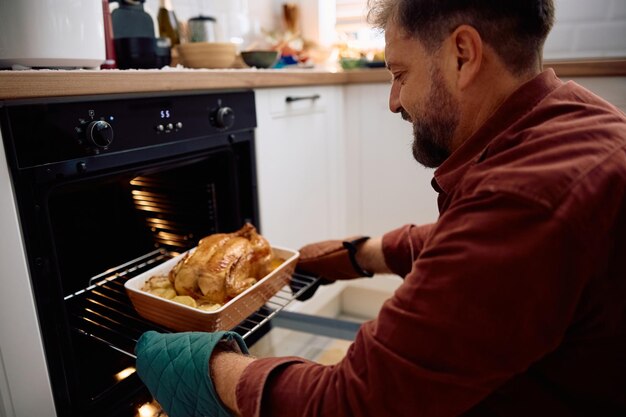Is Your Microwave Increasing Your Cancer Risk? Here’s What You Need to Know
In the hustle and bustle of modern life, the microwave stands out as a champion of convenience. It reheats leftovers, defrosts dinner, and even pops popcorn with unparalleled ease. Yet, along with its remarkable utility, the question looms: Can using a microwave cause cancer? This article aims to dissect this concern, offering clarity to dispel myths while empowering you with knowledge to safely benefit from this kitchen staple.
Understanding Microwave Technology
What Makes a Microwave Work?
Microwaves, a form of electromagnetic radiation, are part of a broader spectrum that includes infrared and ultraviolet rays, radio waves, and x-rays. Specifically, microwaves operate at frequencies ranging from about 300 MHz to 300 GHz. In a typical kitchen appliance, these waves excite water molecules in food, generating heat and providing a swift cook or reheat process.
Radiation: A Clarification
Radiation is a word that often raises alarms, leading people to associate it with danger and health risks. However, it's crucial to differentiate ionizing radiation, which has enough energy to remove tightly bound electrons from atoms, from non-ionizing radiation, which lacks this energy. Microwaves fall under the latter category, similar to the common radio waves we encounter daily, not possessing enough power to alter DNA or cause chemical changes that typically lead to cancer.
Digging Deeper into the Cancer Connection
The Scientific Consensus
Currently, scientific consensus suggests that microwave ovens themselves do not cause cancer. The Food and Drug Administration (FDA) regulates microwave ovens to ensure minimal leakage of microwaves, which is lower than levels considered to be harmful to human health.
It's important to note that extensively researching the effects of microwaves on health is ongoing, but no credible scientific studies have conclusively linked microwave heat or low-level radiofrequency exposure to cancer.
The Real Concerns: Food and Containers
While the microwave itself is typically safe under normal use, the materials you use to cook or reheat food can become health concerns.
Plastic containers: Certain plastics are unsafe for microwave use and can leach harmful chemicals into food when heated. Chemicals such as bisphenol-A (BPA), phthalates, or other industrial-grade compounds can disrupt hormonal balances, potentially leading to health issues. Stick to microwave-safe containers labeled accordingly to ensure safety.
Food types: Using a microwave improperly with certain foods, such as eggs or leafy greens, can cause uneven cooking or nutrient breakdown, although typically not in a way that would pose a cancer risk.
Safe Microwave Practices
Ensuring Safety with Your Microwave
Use appropriate containers: Always opt for glass or microwave-approved ceramics when reheating food. Avoid plastics unless explicitly labeled as microwave-safe.
Cover Your Food: Use a microwave-safe cover to prevent splatters and ensure even cooking or reheating.
Regular Maintenance: Check your microwave's door seals frequently for damage and ensure it’s properly maintained. Damaged seals can lead to microwave leakage, although, even at such low levels, any risk remains negligible.
Healthy Microwaving Tips
Avoid overcooking food: Prolonged exposure to microwaves can lead to nutrient degradation. Balance heating times to maintain food quality.
Stir and rotate: For even heat distribution, stir food halfway through cooking or reheat cycles, and consider using a microwave with a turntable.
Alternatives to Microwave Cooking
Exploring Other Options
For those still hesitant about any form of radiation or seeking variety in their cooking routines, consider the following alternatives:
- Induction cooktops: These use magnetic heating and are known for their precision and energy efficiency.
- Convection ovens: Ideal for even heat distribution and baking.
- Air fryers: Great for crispy textures without using excessive oil.
Myth Busting: Common Misconceptions
Debunking Myths Around Microwaves
Microwaved Food is Radioactive: False. The microwave merely heats the water molecules in food and does not change their structure to make them radioactive.
Microwaves Leak Radiation: Modern safety standards mean microwave ovens that are well maintained present negligible leakage risks, and any leakage remains within internationally safe levels.
Conclusion: Informed Choices for Peace of Mind
Microwaves, when used correctly, are a perfectly safe tool in the modern kitchen arsenal. By understanding the technology and making informed choices about cookware and food preparation, you mitigate any negligible risks associated with microwave use. While continuous research might enhance our understanding further, today’s science supports the notion that microwaves do not cause cancer. With appropriate precautions and periodic appliance checks, you can confidently use your microwave as the time-saving device it is meant to be.
Quick Takeaways for Safe and Smart Microwave Use:
- 🔍 Know Your Ingredients: Always use microwave-safe dishes and containers. Avoid using non-labeled plastics.
- 🌡️ Monitor Heating: Stir food for even cooking, and avoid prolonged heating times to retain nutrients.
- 🛠️ Regular Appliance Check: Ensure your microwave’s seals are intact and the door closes properly.
- ❓ Explore Options: Don’t shy away from using convection ovens and induction cooktops if diversifying cooking methods.
- 🛑 Myth Buster: Remember, microwaves don’t make food radioactive, nor do they 'leak' hazardous radiation.

Related Articles
- Are Breast Cancer Lumps Painful
- Are Chills a Sign Of Cancer
- Are Colon Spasms a Sign Of Cancer
- Are Lytic Lesions Always Cancer
- Are Polyps Cancer
- Can a Blood Test Detect Cancer
- Can a Ct Scan Detect Cancer
- Can a Dexa Scan Show Cancer
- Can a Gastric Emptying Scan Show Cancer
- Can a Lung Biopsy Cause Cancer To Spread
